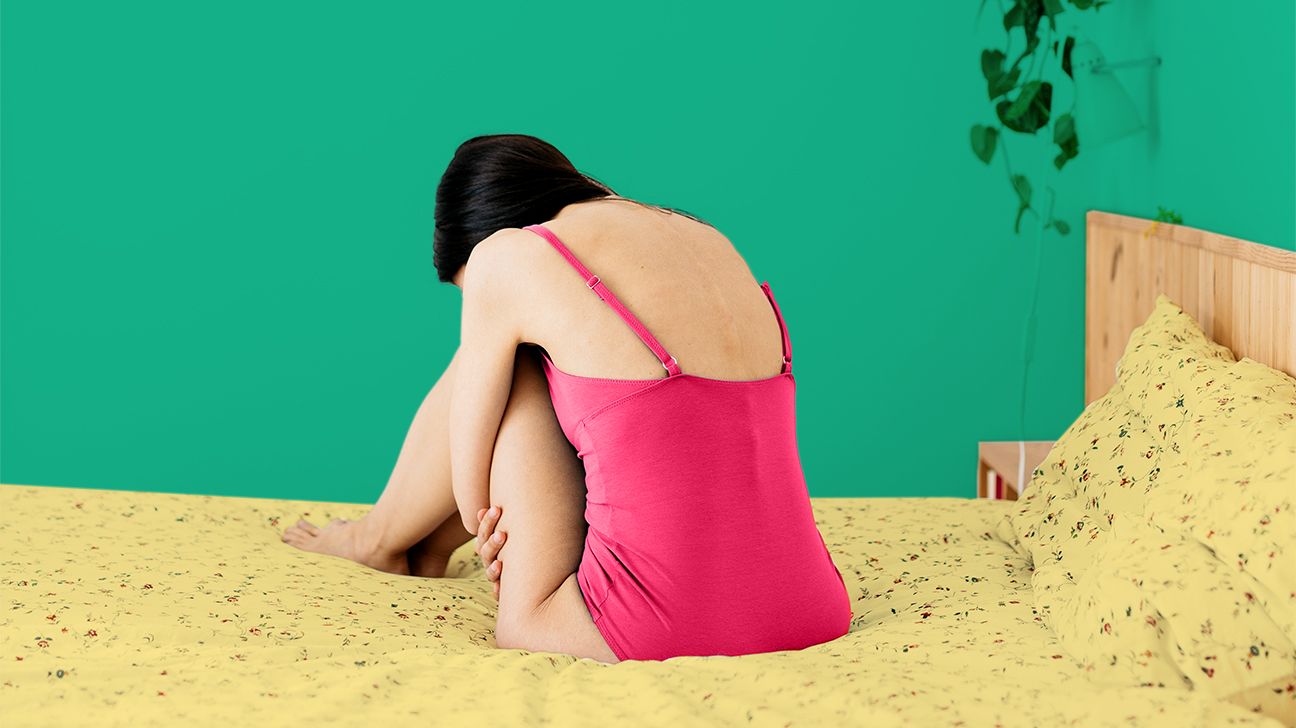You pretty much expect to feel bloated and moody in the days leading up to your period. But is it normal to worry nonstop or feel like a total nervous wreck?
Turns out, all kinds of mood changes can happen around that time of the month — including being more anxious than usual. But while some anxiety before your period can be normal, feeling like you’re on the verge of an anxiety attack on X date each month definitely isn’t.
So how can you tell the difference between typical pre-period mood swings and something that might be more serious? And more important, what can you do to keep those emotions in check and not feel so anxious?
Here’s a look at why your anxiety levels can sometimes skyrocket before your period and how to get the situation under control.
First things first. Mood changes, including feeling more anxious than normal, are super typical before your period. Basically, it all comes down to hormonal shifts that happen as part of your menstrual cycle.
Changes in hormones like estrogen and progesterone, which occur before your period, can have an effect on feel-good hormones like serotonin and dopamine. And that can trigger a flood of not-so-good feelings.
So why doesn’t everyone turn into a basket case before their period? First of all, pre-period mood changes can come in a bunch of different forms. Some women might be extra irritable while others feel inexplicably sad or angry. For others, the issue is anxiety.
Keep in mind, too, that some women are just less sensitive to hormone shifts than others. And the more sensitive you are, the more likely you might be to get hit with all the feels before your period.
There’s feeling a little tense or worried before your period, then there’s severe anxiety that can leave you feeling emotionally smothered, dizzy, or straight up sick to your stomach.
If you’re dealing with the latter, you might have premenstrual dysmorphic disorder (PMDD), which is more serious than your basic case of PMS.
PMS
Until recently, people used to talk about premenstrual syndrome, which is the typical cloud of not-so-fun symptoms that hangs over most women before their period.
There’s the physical stuff like bloating, headaches, and breast tenderness, plus the emotional stuff like feeling kind of sad, anxious, irritable, or withdrawn.
However, doctors and researchers realized that PMS didn’t fully capture the full range of experiences that some people encounter around the time of their period and ultimately decided to retire the term PMS in exchange for PMDD.
The difference between PMS and PMDD? PMS doesn’t technically exist anymore as a medical diagnosis, but it’s commonly used to describe the less intense feelings of bleh, meh, and ugh in the week leading up to your period.
PMDD
Premenstrual dysmorphic disorder is the broader, more accurate term for your pre-period woes, though it’s often used in conjunction with more severe symptoms.
These include all the typical PMS symptoms, but can also be marked by severe anxiety, irritability, or depression that flares up in the week leading up to your period and dissipates a few days after your period starts.
PMDD can also make it harder to concentrate, zap your interest in the things you usually enjoy, cause trouble sleeping, or leave you feeling like things are just totally out of control.
In short, the severity of PMDD depends on the person. If symptoms start to mess with your life, don’t suffer in silence. Your doctor can help you come up with a treatment plan that makes your monthly visitor less of a b*tch.
Generalized anxiety disorder
Generalized anxiety is a common form of anxiety characterized by constant, excessive worrying about things that aren’t actually worth worrying about or things that you simply can’t control.
The anxiety gets to the point where it makes it hard to function and might cause physical symptoms like a headache or stomach ache.
Generalized anxiety disorder is different from PMS and PMDD because it’s not tied to your menstrual cycle. If you have it, you pretty much feel anxious all the time (or seemingly out of nowhere) — not just in the week or 2 leading up to your period.
Anxiety before your period isn’t fun, but there are a lot of things you can do to get your emotions in a more positive place. Here are some science-backed strategies worth trying.
Get some exercise
Aim for at least 30 minutes a day most days of the week — and not just before your period. Exercise on the whole boosts your energy and overall well-being, and women who work out on the reg all month long tend to have milder PMS symptoms compared to those who are sedentary.
Go to bed on time
Sleep deprivation can wreck your mood, and those effects only get amplified during a time of the month when you’re prone to not feeling your best. Getting 7 to 9 hours of sleep won’t guarantee you wake up feeling like sunshine every single day, but it’ll at least start things off on the right foot.
Try relaxation techniques
Hit up a regular yoga class, make time to meditate, practice breathing exercises, or schedule a massage. All of these things are great for helping you unwind — both before your period and throughout the rest of the month.
Focus on carbs and calcium
Try oatmeal with milk for breakfast or have a cheesy baked sweet potato for lunch. Complex carbohydrates are known to reduce PMS-related moodiness and anxiety, while getting enough calcium is thought to help with feelings of depression.


